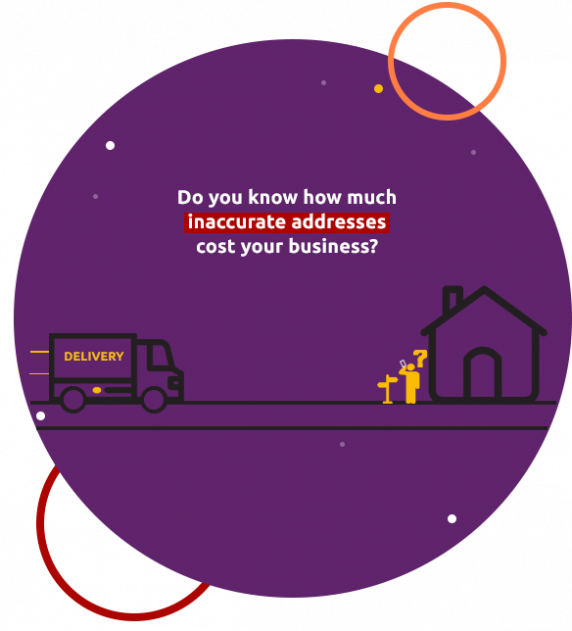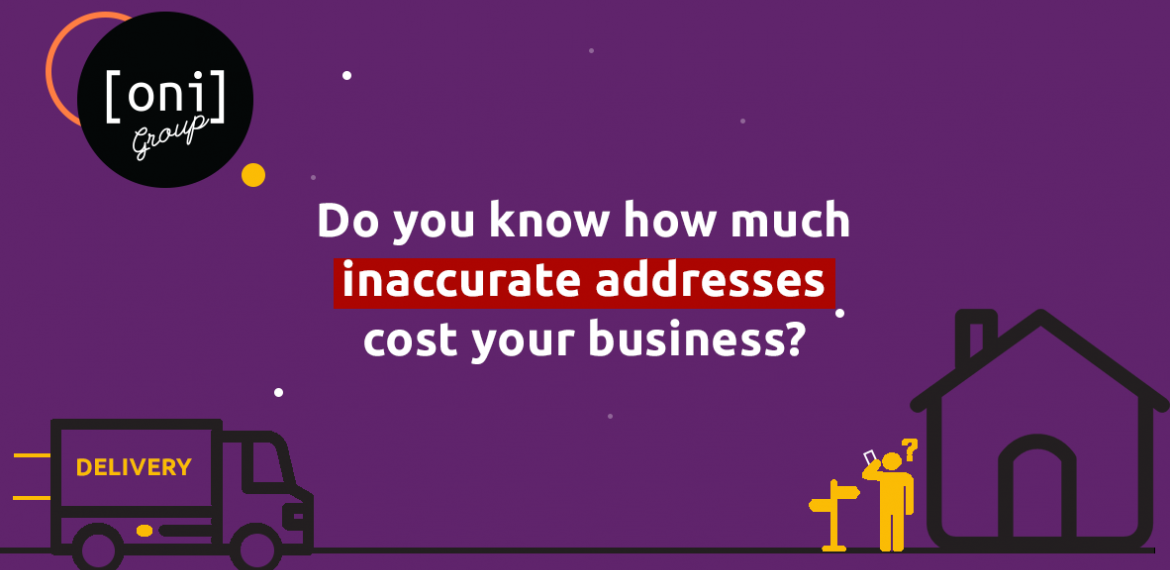For every logistics journey and ecommerce transaction there is at least one address. Without it, customers can’t complete their purchase, and logistics providers can’t deliver the goods. Addresses are one of the single defining long term factors between converting customers and retaining customers. In this article we’re going to examine why bad addresses are such a challenge for logistics and we’ll look at how to solve this problem.
Incorrect addresses could affect more than $7.42 billion of e-commerce revenue in the Middle East
Inaccurate addresses are a serious problem for both logistics and ecommerce providers: it means missed deliveries, re-deliveries, futile charge, expensive manual address validation and extensive customer support. Not to mention customer dropouts - according to Google an average of 68% of online shopping carts get abandoned. And 21% of these customers say they do so if they have to re-enter shipping info.
According to Statista, the value of e-commerce in the Middle East in 2020 amounted to around $17 billion, of which $5.5 billion was in Saudi Arabia, and $4.5 billion was in the UAE market. The value of e-commerce in the Middle East was expected to exceed $27 billion by 2025.
Venture capitalist firm Mavericks, reports that last-mile delivery failure rates range between 15% in the UAE to 40% in Saudi Arabia leading to poor customer satisfaction and lost revenue in a country where most customers pay cash on delivery. This means that more than $7.42 billion in e-commerce revenue in the Middle East could be affected by inaccurate addresses.
So how can we solve this multi-billion dollar problem? The solution will be different depending on whether you’re a logistics provider or an ecommerce business.
Backend Address Cleansing for Logistics providers
As a logistics provider you’ll know how challenging it is to receive thousands of addresses in a spreadsheet and make sure these are correct. OniGroup’s technology can validate and structure batch addresses from 3rd parties such as retailers and e-commerce providers. OniGroup has developed a backend web service (API) designed specifically to help businesses validate addresses captured from 3rd parties or from systems where there is no front-end validation in place.
Key features include:
- Geocoded addresses with distinct address components and accuracy level measurement
- Matching algorithm to indicate potential false positives
- Feedback loop to a front end solution if the address can’t be validated to the backend
Frontend Address Verification for E-commerce and Retail
To capture the right address at the source, OniGroup has designed Oni AVW, an Address Verification Widget made specifically for emerging markets. With a maps based validation, it allows users that don’t have an address to simply drag and drop a pin to the exact location of delivery. Built entirely on Google Maps & Google Cloud Platform it works across frontend and backend address cleansing, providing an infinitely scalable solution that is completely customisable for your business and UI requirements.
At the front-end OniGroup’s Address Verification Widget:
- Detects errors and spelling mistakes in real-time
- Allows for faster validation through a map based validation
- Prompts users to complete their address if fields are missing
- Has a drag & drop feature to cater for users without a text address or who cannot find their address
- Provides the ability to customise your UX to match your brand or customer preferences
Why Current solutions don’t solve the problem
You might already have a solution in place but perhaps we can help you improve it? Even Google’s geospatial data sets are the best in the world and while exceptional, they are not ‘silver bullets’ for managing new customer addresses, new developments and of course emerging markets. In addition, traditional address services are riddled with legacy designs that don’t actually solve the core problem but create new ones.
Static address data sets:
- In developed markets, addresses can remain largely static but in emerging markets these addresses need constant updating as cities/regions grow with new developments
- Traditional solutions cannot cater for new users which means businesses cannot deliver to new customers as their address cannot be found
- In comparison, we use Google which updates their Places Database 25 million times a day!
Search: Basic elastic search vs relevancy based search:
- Even though 2 users may search for ‘Downtown Dubai’ they may mean two completely different places
- The ‘fuzzy logic’ built into the Google Maps Platform APIs can accurately detect what a user is searching for based on 1 billion monthly users
- Additionally, with this logic we can predict your location search before you've even finished entering the address, speeding up conversion time
Backend Address Verification:
- Existing providers will tell you whether an address exists or not but cannot tell you why it is inaccurate
- Our service can tell you the missing components and an accuracy score for that address
- We can also ping a link through to the end customers using our front end solution to revalidate the address if we detect a problem with the original input
How to calculate the ROI for solving this problem
As you read in the first section, if we can solve the problems we just listed, there are enormous gains to be had at multiple levels in the transactional and logistical chain.
We’ve narrowed this down to the following metrics:
- Speeding up customer conversions: The faster the customer enters their address, the faster they buy your products.
- Customer retention: One bad delivery experience due to a bad address can influence whether a customer returns to your platform or not.
- Reducing missed, wrongful or failed deliveries. While addresses are one of the key root causes of delivery problems, this is where the bulk of the costs to the business lie.
- Enabling new customers to use your service: If a customer can’t find their address, then they can’t use your services. How many customers drop out because they can’t find their address? According to DHL in new areas and emerging markets this can be as high as 60%!
- Providing faster & more accurate delivery ETAs. This is a huge differentiator. By having more accurate address data we can predict more accurate delivery times.

